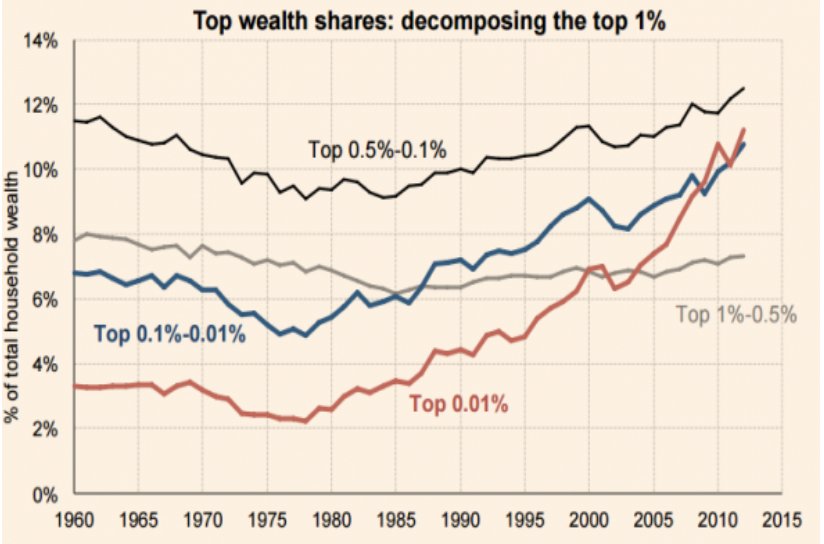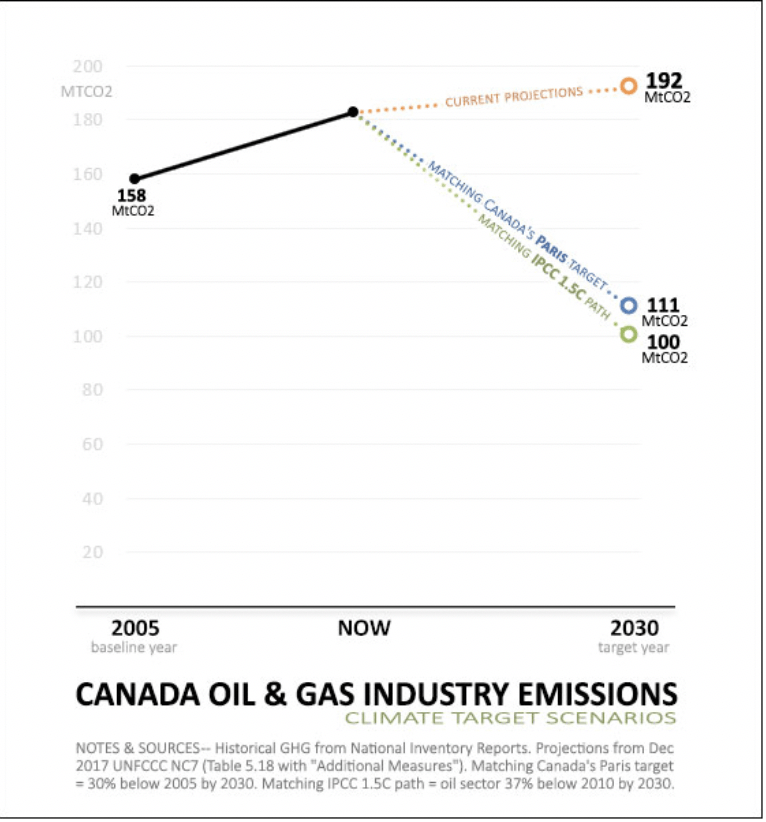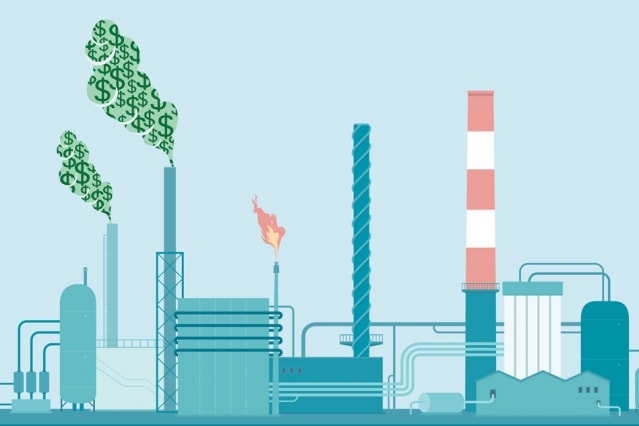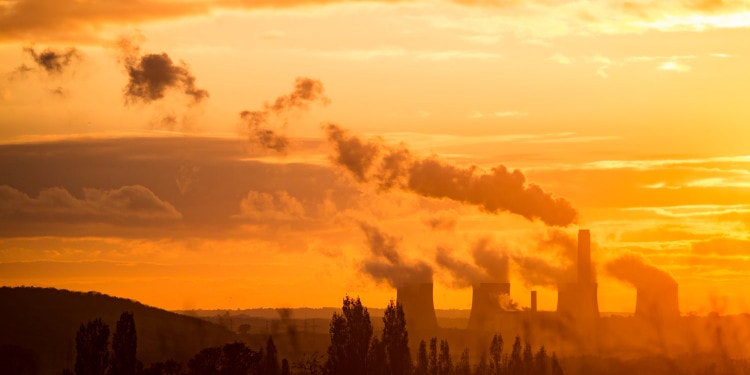Can we agree that corporate elites and billionaires are not our saviors for building a sustainable economy? In fact, quite the contrary, through their direct and indirect lobbying efforts and subtle influence as “elites”, they have delivered us a unique form of climate destroying and wealth hoarding capitalism that is sending us straight into an existential crisis. And the carbon tax as now conceived is not the answer.

The system is so efficient at consolidating wealth that in 2017, 82% of all wealth created went to the top 1%. And if you step back and look at the rate of growth of wealth accumulation by the 0.1% – 0.01% in the last 40 years, you can clearly see just how well this system enriches the elite at the expense of everyone else.
According to author Umair Haque there’s nothing intrinsic about Billionaires, they’re simply a policy choice, or failure. He states in his article, “Why Billionaires Need Society More Than Society Needs Billionaires”, that, “Nobody is inherently a billionaire. We decide as a society to reward some activities and punish others and treat others with indifference — hence, billionaires.”
Let’s look deeper.
How did those policies come to exist? You might be surprised to know that, “each year, state lawmakers across the U.S. introduce thousands of bills dreamed up and written by corporations, industry groups and think tanks.” You could argue that these people know most about these issues and that’s why they’re doing this work BUT then ask yourself, who do you think is paying for these industry organizations, lawyers and think tanks to sculpt society and what is their priority– the public good or serving the interests of their employers.
They Don’t Work For Me
Have you ever wondered why government doesn’t seem to do things that most people want? In this 2014 Princeton study by Martin Gilens and Benjamin I. Page, it was found that compared to what the American people wanted to what the government actually did, it was found that the “bottom 90% of income earners in America has essentially no impact at all.” As the authors of the study said:
The preferences of the average American appear to have only a minuscule, near-zero, statistically non-significant impact upon public policy
Around the world people are furious at government’s failure to deal with climate change and worsening inequality. Politicians are in a tough spot, ideally they would like to try and solve these big problems but at the same time they don’t want to upset their bosses; the billionaires and corporate elites who they not only revere but on a practical level they also need them to fund their campaigns. If politicians dealt with both inequality and climate change effectively – from the perspective of societal wellbeing, it would cost their bosses some of their fortunes and would alter the status quo that makes them so wealthy.
So nothing really changes. Every major ecosystem on the planet is in decline and the rich are gobbling up most of the wealth created. If you’re not furious then you’re not paying attention or you’re part of the 0.1%.
Deeply Flawed
In Canada, the carbon tax strategy is deeply flawed. At 4.42 cents/litre, it’s mostly an irritant for ordinary hard working Canadians who have few if any inexpensive alternatives. And most research confirms that it’s only a small piece of a vague strategy that relies on unrealistic projections that are currently trending in the wrong direction.

This tax alone isn’t expected to achieve anything near the necessary systemic changes that will give us our best chance to hit our Paris targets. At best it’s a partial and incremental solution that is underwhelming considering our dire predicament – we simply don’t have 20 or 30 years to wait for massive behaviour change. Additionally, it drives an unnecessary wedge between rural and urban voters that are essentially united on an issue that is going to impact us all. No one wants to have to pay more for our collective problem – especially hard working rural folks who are going to feel the pinch more because on average, they use their vehicles to drive much further distances for both their home and work lives.
Schizophrenic Behaviour
While the Canadian government claims to be a global climate leader, they are simultaneously spending billions of taxpayer dollars to support the continued expansion of the oil and gas sector. And if that isn’t enough of a contradiction, they decided to add a little perk that gives the sector an “80% exemption from federal carbon pricing.”
This strategy is effectively the transfer of billions of dollars from ordinary taxpayers directly into the hands of the oil and gas sector. But hold on – why isn’t our government at least sharing in the profits on behalf of the taxpayer’s investment. This feels a lot like corporate welfare where taxpayers pay for the capital expenditure and the cleanup while the profits are funneled into the hands of the corporate elite and billionaires.
At best this is a poor strategy and at worst it’s outright patronage by a beholden government that is compromised in its decision making ability.
The Best Problem Solvers to the Rescue
It’s time we tap into the superhuman minds of billionaires. We’ve been told for decades that they’re special because of their extraordinary powers to solve problems – they must be because they constantly tell us that they shouldn’t pay higher taxes because they are smarter and more efficient at spending money than the government and they know better than anyone, how to turn money into greater wealth and jobs.
But there’s a problem, billionaires are mostly if not only, interested in solving problems if there’s an economic win for them. That is, they need to be sure that in the process of engaging, some of the financial gains will be kicked back upstairs to them. This should sound familiar if you’re up to date with the latest CSR trends like Social Innovation, Impact Investing and Doing Well By Doing Good.

How Did It Get Like This?
Our business model is no accident – it has been sculpted and tweaked by the elite and billionaires during the past 40 years. It has led to the decline of every major ecosystem on the planet, has filled our oceans with plastic, led to enormous biodiversity loss and deforestation and it has created a level of inequality not seen in 100 years. While this was occurring, the elite captured enormous wealth, interfered with our governments to ensure that they had to share as little of their fortunes as possible and orchestrated the shift of their environmental and social harm onto governments and thus taxpayers.
When looking for climate change solutions, it’s absurd to ask average citizens to pick up the tab to retool the oil and gas sector and to reshape an economic system that they had no say in creating and were mostly absent in the sharing of its wealth.
The Pathway to a Solution
As stated earlier, politicians are compromised but they don’t have to be – it’s a choice and they still have the power to drive change in a way that promotes wellbeing for all Canadians.
It’s not too late to curtail the worst impacts of climate change and that’s why we need to engage the minds of our esteemed billionaires. Let’s consider a simple and fair solution that not only holds those who created and profited from the climate plundering system accountable but it also keeps them hungry to solve the problem. Let’s find a win-win opportunity that speaks their language. Then we can stand back, give them room to maneuver and watch them solve climate change while creating great wealth and millions of jobs.
Billionaires Summoned to Ottawa
Let’s use Canada’s new carbon tax as the example. First, let’s tally the revenue to be generated from the tax. At $20/tonne for GHG emissions, the expectation for the first year will be approximately 2.5 billion in revenues or approximately 210 million/month.
Next we invite all Canadian Billionaires to Ottawa for a Davos style meeting where they will be addressed by Canada’s Prime Minister, Justin Trudeau. The theme of the dinner is, how to access Canada’s best brain power to solve our climate challenge.
The “Climate Karma Tax”
After dinner, Justin Trudeau makes a short speech to introduce his new plan called the “Climate Karma Tax”. He tells the audience that he and his cabinet have had a revelation. They have decided that to get Canada on a path to meet their Paris commitments, a carbon tax is a poor strategy and that as of this moment, that plan will be terminated and replaced with a new plan.
Mr. Trudeau goes on to say:
My fellow Canadians, it is time for you to admit that you have been unimaginably fortunate to have accumulated your vast fortunes. But we cannot ignore the fact that you have created this wealth from within a rigged system. A system that you have played a key role in creating and maintaining thanks to your support both financially and through your influence as elite Canadians. A system that has systematically transferred ecological harm from private companies and shareholders who gained great wealth, to the government and taxpayers who shared very little of it. A system that is rigged with benefits such as a wealth friendly tax code and lax regulations that have often been slowed or reversed because of your direct or indirect lobbying efforts.
Tonight we hold you accountable for your past harms. In a country ruled by laws, no one should be able to wreak havoc on so many lives without repercussions. So on behalf of all Canadians, you have been chosen to lead the new “Climate Karma Tax” committee.
Everything we care about is at stake. We have great faith in your abilities as billionaires, and for that reason you will be provided with unprecedented legislative assistance to help Canada meet its Paris commitments.

Motivation
We know that motivation is an important aspect of any new position and for that reason, we will require that you pay the carbon tax on behalf of all Canadians – not the starting tax of $20/tonne but at $50/tonne, the fee which is scheduled for 2022. We believe that this number is more realistic for driving the type of drastic behaviour and technology change that is necessary. Based on these figures, the total tax expected for 2019 will be 6 billion dollars – that is 500 million every 30 days. This will continue for 12 months at which time we will revisit the issue.
I will now leave it to you to decide how to allocate the tax amongst yourselves. Your first bill is due in three days.
Thank-you for coming. I look forward to seeing you again next month
Justin Trudeau, Prime Minister of Canada
Watch how fast Canada adjusts to this challenge with real solutions that not only help the corporate elite and billionaires but that helps all Canadians. It’s amazing what can happen when the incentives are aligned so that billionaires are on the same team as everyone else.
Note: Canada has 45 billionaires with a combined net worth of 153 billion. The annual carbon tax for this group is 3.9% of their net worth. Surely they would be happy to share this small piece of their fortunes to help the country that has been so good to them.
EDITOR’S NOTE: The opinions expressed here by Impakter.com columnists are their own, not those of Impakter.com.













